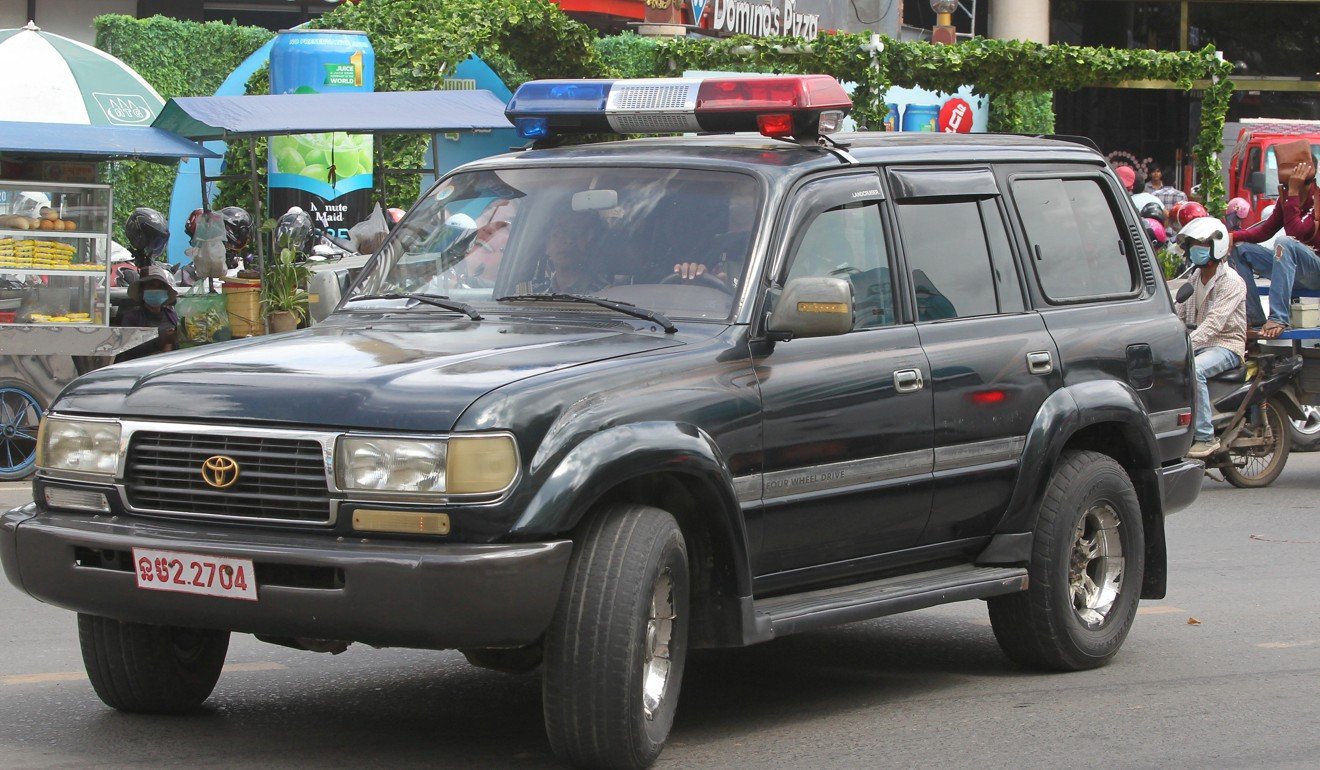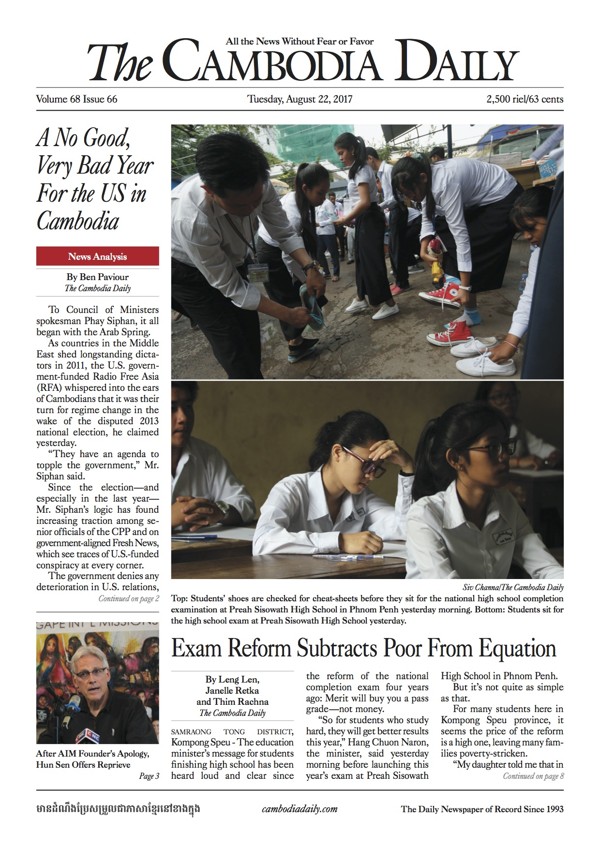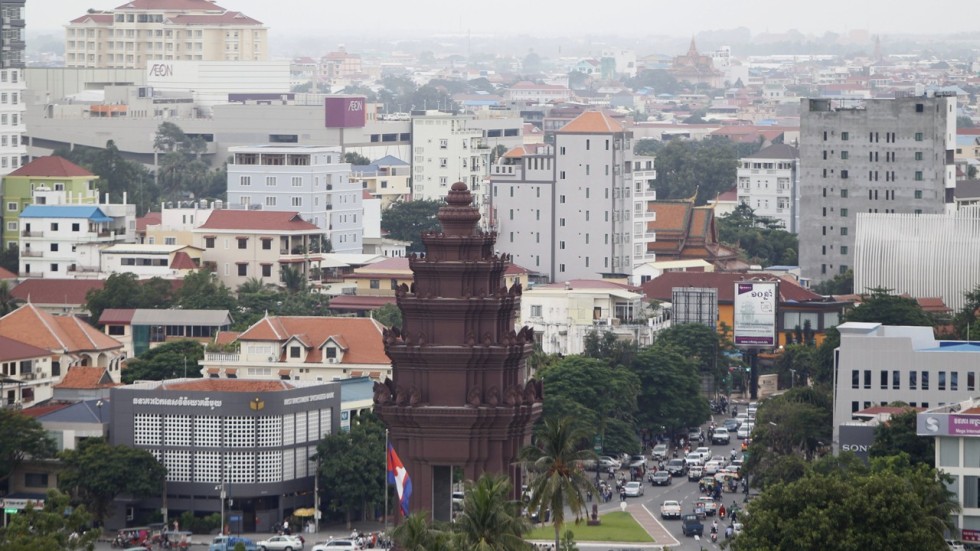Asean lawmakers concerned about media crackdown in Cambodia
AP / South China Morning Post | 31 August 2017
Members of parliament from around Southeast Asia expressed grave concern on Thursday about the human rights situation in Cambodia, as the government cracks down on independent media outlets and civil society organisations.
“This crackdown is a dramatic escalation of the government’s moves against critical, independent voices and is deeply concerning for the fate of Cambodian democracy, particularly with national elections less than a year away,” said Malaysian lawmaker Charles Santiago, chairperson of Asean Parliamentarians for Human Rights.

“For years now, Cambodia has been defined by a climate of fear, instilled by the ruling party as a tactic for remaining in power. But what has occurred in recent weeks is a legal assault on civic space unlike anything we’ve seen since the signing of the Paris Peace Accords in 1991,” he added.

More than 10 local radio stations were ordered off the air and had their licences revoked, while The Cambodia Daily, a prominent newspaper published in Khmer and English, has been hit with a US$6.3 million tax bill. It faces the prospect of being shut down and having all its assets confiscated if it fails to pay up by Monday.
“Cambodians are losing an important lifeline to independent information, integral to the successful functioning of a democratic society,” said Philippine congressman Tom Villarin. “The sharp and sudden demise of the limited space for free media that previously existed in Cambodia should alarm even the most cynical observers. The Cambodia Daily has been an important source of independent news for over two decades. Everyone must pay their taxes, yes, but tax bills worth millions of dollars cannot be handed down arbitrarily, without providing an opportunity to dispute them,” Villarin said.
“Closing down The Cambodia Daily in this manner is nothing more than a transparent attempt at limiting the amount of information Cambodian people can access on controversial issues.”
The newspaper was established in 1993 by Bernard Krisher, a Japan-based American journalist who covered Cambodia in the 1960s for Newsweek magazine, and is now owned by his daughter Deborah Krisher-Steele.

“Governments around the world need to act now to help us fight off this unfair effort to close our newspaper,” Krisher-Steele said in its Monday edition, calling the tax demand the culmination of months of harassment.
“The massive bill the government has handed us is an assault on press freedom thinly disguised as a tax dispute,” she said, adding that the bill, which dates back 10 years, “has no basis in reality”.
“They are both accusing us of being subsidised because we are running at a loss and at the same time demanding a 20 per cent profit tax on all of our revenue,” she said.
When asked about the government’s media crackdown, senior Information Ministry official Phos Sovann said the actions only targeted those outlets that abused rules and regulations that were agreed upon before they started operations.



No comments:
Post a Comment